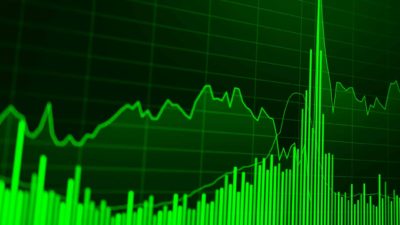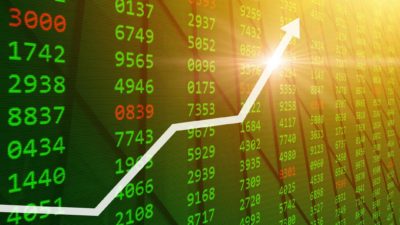At a time of rising inflation, there is one key metric that investors should research before buying a new ASX share, says Prasad Patkar, head of qualitative investments at Platypus Asset Management.
In an article published by the Australian Financial Review (AFR) today, Patkar says it's pricing power.
Patkar said:
If you are only allowed to look for one metric to assess the quality of a business, it would be sustainable pricing power. It is an attribute of particular import today when rising input costs are eroding margins for those who don't possess pricing power.
Analysts grill ASX companies on their pricing power
JP Morgan strategist Jason Steed said price increases were a hot topic during reporting season.
There was a marked increase in the number of questions on price increases in conference call transcripts. Analysts wanted to understand the capacity each company had to raise prices to offset rising costs. Steed said: "Through the season, focus on the topic of price increases hit an all-time high."
A company's ability to raise its prices is important for ongoing profitability.
Rising inflation means many companies are paying more for the inputs into their products and services. So, they need to be able to raise customer prices to help offset or overcome those cost increases.
The ability to raise prices also means companies can take advantage of inflation to an extent, with both business-to-business customers and consumers aware and somewhat accepting that 'everything is going up'.
Which ASX shares have pricing power?
Patkar said businesses with pricing power include REA Group Limited (ASX: REA), Pro Medicus Limited (ASX: PME), ARB Corporation Limited (ASX: ARB), and IDP Education Ltd (ASX: IEL).
Patkar elaborated:
It is not a discretionary purchase for the customer. The product or service offered is superior to that of competition and is backed by reputation or brand. The cost to switch between competitors is usually high and not worth the hassle or risk.
Companies like REA, Seek Limited (ASX: SEK), and Carsales.com Ltd (ASX: CAR) have consistently increased their prices almost every year over the past decade.
REA put its prices up nationally by an average of 8%, according to the article.
The CEO of Ansell Limited (ASX: ANN), Neil Salmon, said they had upped prices without much fuss:
We've seen good receptivity to those price increases and that's why I remain confident that we should be able to fully pass through the inflation effects we see in the rest of our business.
The challenge is getting the balance right. Some companies will lose demand if they raise their prices too much. So it depends on how popular their products and services are and how necessary each customer deems them to be.
Wilsons Advisory told its clients that Cleanaway Waste Management Ltd (ASX: CWY), Telstra Corporation Ltd (ASX: TLS), Lottery Corporation Ltd (ASX: TLC), CSL Limited (ASX: CSL), Resmed Inc (ASX: RMD), and James Hardie Industries plc (ASX: JHX) have significant pricing power to help them offset rising costs.
Some companies protect themselves from rising inflation through contract arrangements with built-in CPI-linked price increases. According to the AFR, 68% of the revenue of Transurban Group (ASX: TCL) is protected this way.
Sustainable and temporary pricing power
In assessing a company's pricing power, Patkar says investors need to differentiate between sustainable and temporary pricing power.
Patkar said: "When demand went through the roof post COVID and supply couldn't keep up, everyone seemed to have pricing power. In a shortage, you can take price almost at will."
Businesses with sustainable pricing power "can take price steadily and regularly because the value they
add to customers is so much larger than the price they charge for it".
Right now, some companies are taking advantage of unprecedented demand in their sectors to raise prices. However, this demand might be temporary.
In Australia, the cost of building a residential house has risen substantially due to supply chain issues, extra demand from tens of thousands of HomeBuilder projects, inflation, and a lack of skilled labourers.
According to the quarterly CoreLogic Cordell Construction Cost Index, the cost of building a house has risen by 10% over the 12 months to June 2022 — the highest increase since the GST was introduced in 2000.
Such demand pressure has allowed building materials manufacturer Boral Limited (ASX: BLD) to bring forward its annual price increase to August. This is on top of extra price rises earlier in 2022 for products like cement and concrete.
Boral CEO Zlatko Todorcevski said:
These are some of the largest pricing increases by geography and by product line that we've put in the market over the past five years. And I think that's appropriate. I think it's reflective of the inflationary environment we're facing.
Big price rises or little price rises?
Some companies with pricing power raise prices in large chunks, while others prefer a steadier approach.
According to the AFR, examples of companies undertaking double-digit price increases include Brambles Limited (ASX: BXB). The cost of hiring CHEP pallets in the United States in 2H FY22 rose by 17%.
ARB says it prefers to do small but frequent price increases given rising inflation is expected to continue into 2023.
ARB says monthly demand for its products has been four times pre-COVID levels. This puts them in a good position to raise prices.









